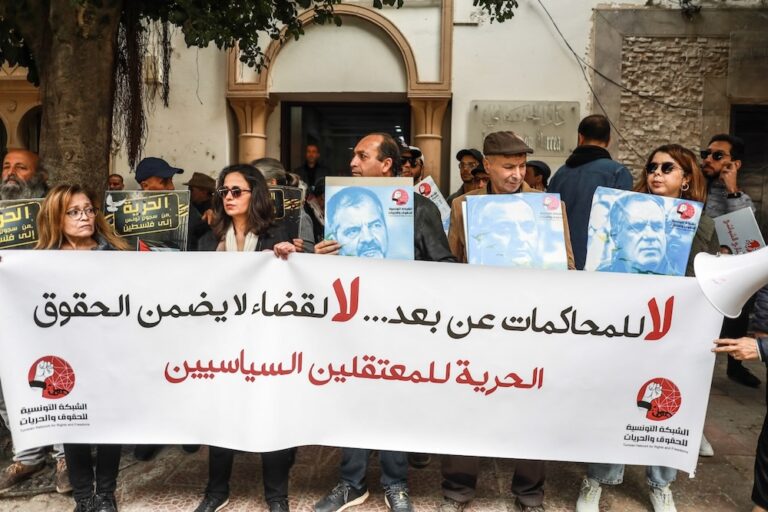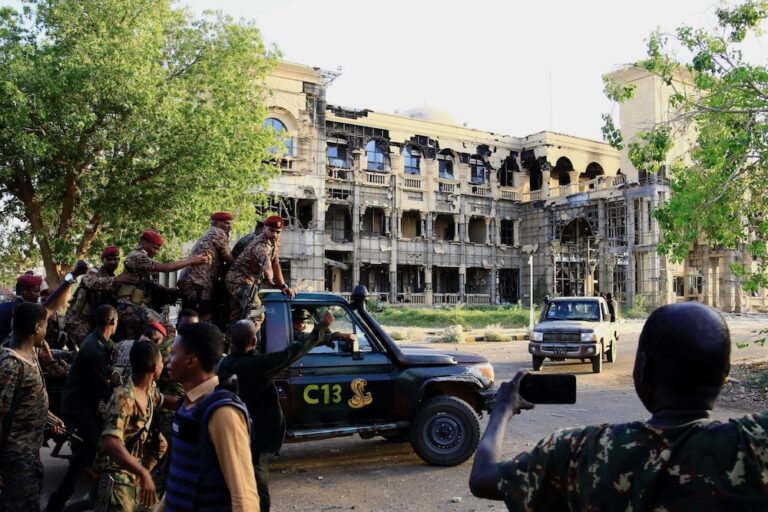The "Countries at the Crossroads 2011" report concludes that success in the Arab democratic revolution will require major reforms in government institutions that had been seriously undermined during previous authoritarian regimes.
(Freedom House/IFEX) – Washington, November 4, 2011 – A new Freedom House report, Countries at the Crossroads 2011, concludes that success in the Arab democratic revolution will require major reforms in government institutions that had been seriously undermined during previous authoritarian regimes. The report predicts that failure to institute thorough-going reforms in areas like adherence to rule of law, accountability of the army and security services, protection from state abuse, and official corruption could lead to the ascendance of forces that are hostile to freedom and committed to the reassertion of autocratic rule.
The report notes that while long-entrenched authoritarian leaders have been forced to give way to popular pressure for change, these breakthroughs carry no guarantee that democratically accountable systems will follow in their wake.
“The uprisings in the Middle East and North Africa have dispelled illusions about the durability of authoritarian systems in the Middle East,” said David J. Kramer, president of Freedom House. “By ridding themselves of dictators and leaders for life, the Arab people have vividly demonstrated their devotion to the idea of freedom. But achieving democratic reforms in the region demands long-term commitment, determination, and resilience by societies in the region and supporters in the democratic world. This report drives home the fact that there will be no short cuts to real democracy in Egypt, Tunisia, or the rest of the Middle East.”
Key findings of the report include:
Tunisia and Egypt: These countries suffered acute deterioration in their governance performance in the years preceding the Arab Spring, placing them among the worst-ranked states in the “Countries at the Crossroads” study. Such declines from already low levels revealed that the leadership in both cases had little or no commitment to reform. In Egypt, the months since Mubarak’s ouster have revealed a much darker outlook than in Tunisia. Egypt’s Supreme Council of the Armed Forces (SCAF) has resorted to familiar methods of repression, including severe curbs on civil society and independent media. Egypt can achieve almost immediate progress by opening the space for civil society and news media, ensuring fair and transparent elections beginning in November 2011, and taking a constructive role in peacefully resolving sectarian divides.
“Egypt’s upcoming elections represent a critical moment in the country’s post-Mubarak development,” said Vanessa Tucker, project director of Countries at the Crossroads. “The SCAF must demonstrate a clear commitment to a peaceful and transparent transition to civilian rule if it hopes to maintain any degree of legitimacy.”
Algeria and Morocco: The Crossroads analysis demonstrated troubling declines in freedom of association in Algeria, and judicial independence and primacy of the rule of law in Morocco. These countries have so far avoided any persistent protest movements, but their cautious pursuit of reforms may prove inadequate given the rapidly changing expectations in the region.
Libya and Syria: Findings identified declines in protection from state terror and primacy of rule of law, respectively. These countries will need to build new governance systems almost from scratch, as the highly dysfunctional old regimes and ongoing civil conflicts have left core institutions in ruins. The divisions engendered by protracted violence will make political reconstruction and its essential compromises all the more difficult.
Economic and Political Reform Challenges: While the old regimes in some cases were successful in achieving macroeconomic growth, they consistently blocked meaningful political reform. As a result, any new national wealth was funneled into existing systems of elite corruption and patronage, deepening the sense of grievance among ordinary citizens. Successful political reform therefore would offer societies in the region a chance to break free from the crony economics that have smothered economic opportunity.
Other Key Countries: Venezuela, along with Syria, underwent the sharpest decline in the rule of law category. China showed significant signs of deteriorating governance, with particularly notable declines in the areas of civil society, media freedom, and the rule of law. Greece and Italy, analyzed for the first time in Crossroads, faced deep challenges related to corruption, bloated and inefficient civil services, and excessive bureaucratic regulations.
In this year’s full set of country reports, declines exceeded improvements in both number and degree, with widespread efforts by governments around the world to restrict freedom of expression – two out of every three countries with previous data declined in this subcategory. The free and fair electoral laws and elections subcategory was also hit hard, as 17 countries with previous data declined in this area.
The Countries at the Crossroads 2011 report analyzes the performance of 35 countries – including six in the Middle East and North Africa (MENA) – in the spheres of government accountability, civil liberties, rule of law, and anti-corruption and transparency. The countries’ scores cover the period from April 2007 through December 2010, and generally indicate grim and deteriorating conditions in the run-up to the Arab Spring. Countries at the Crossroads provides detailed written analysis and comparative data on 70 critical, policy-relevant countries, with half of the total assessed each year.
Further information on the findings is available in the Crossroads overview essay and in a series of charts and graphs. Freedom House will hold a release event in Washington, DC, on November 4 with the Atlantic Council of the United States, featuring experts on democratic development and the Middle East region.


